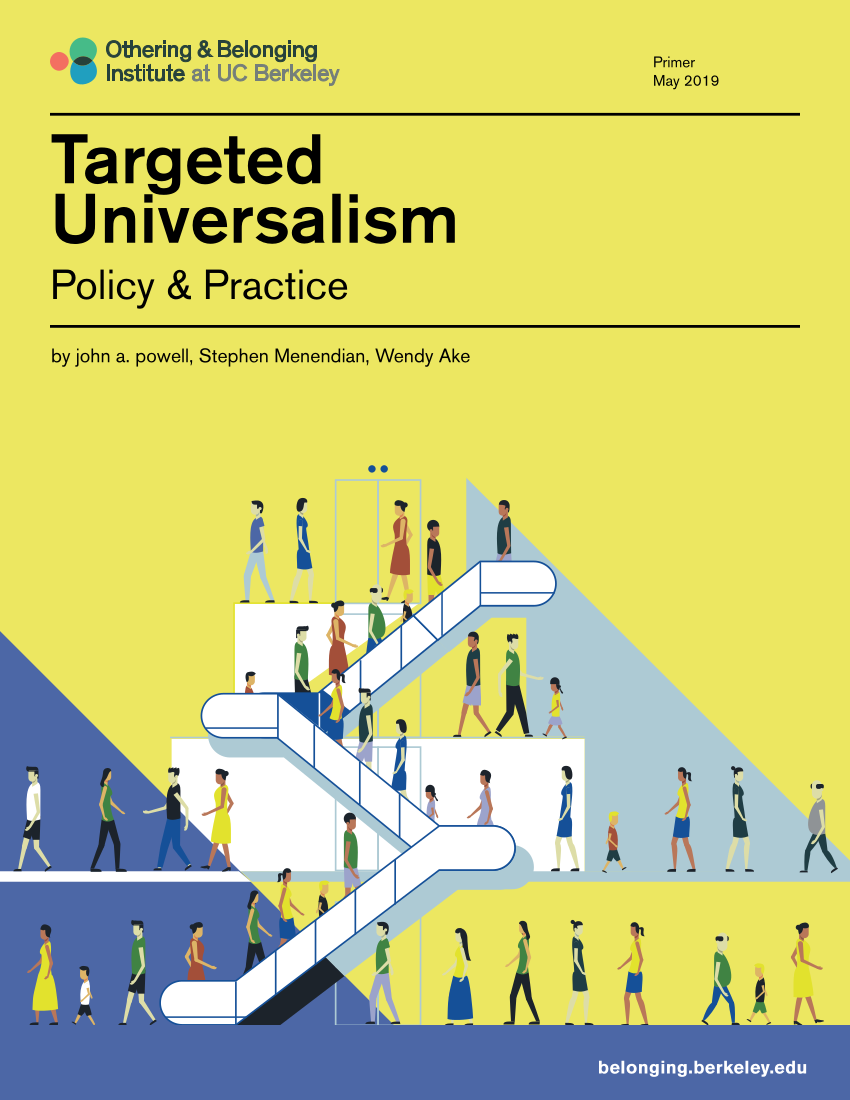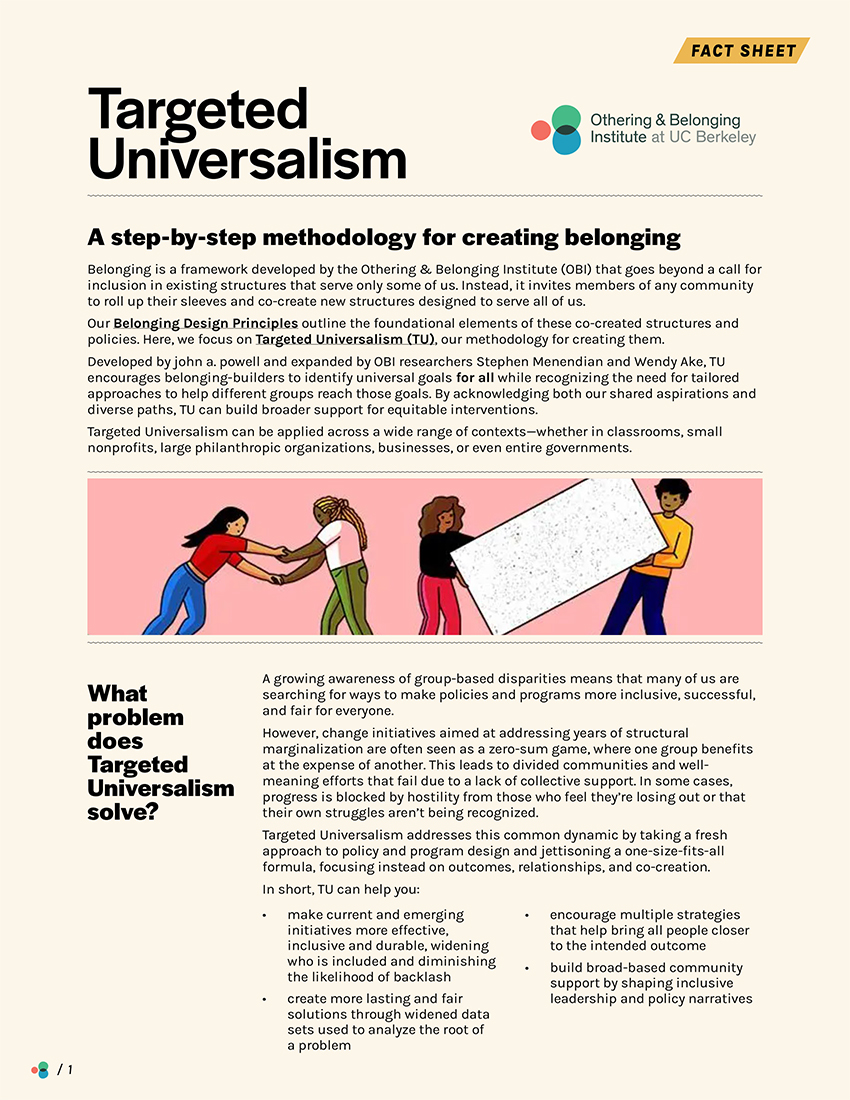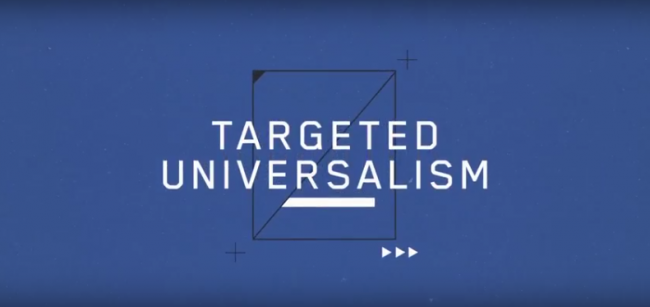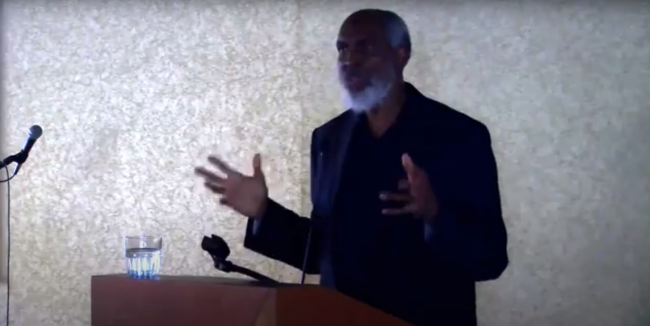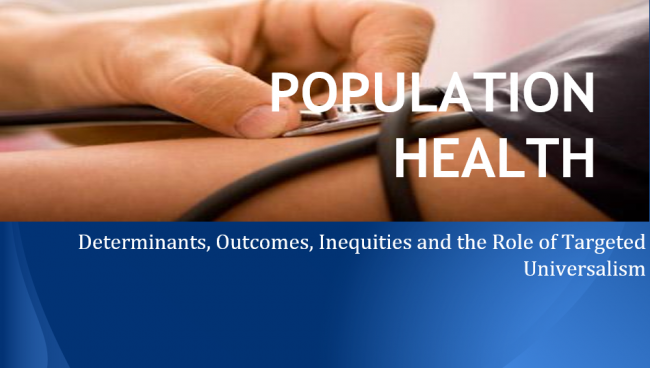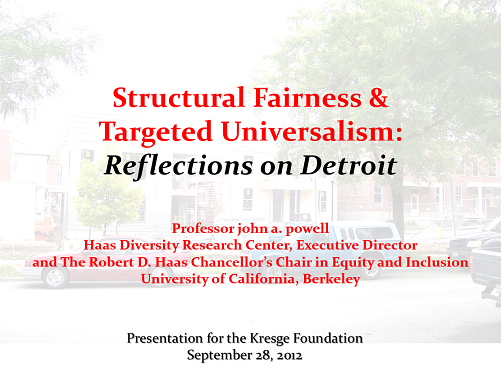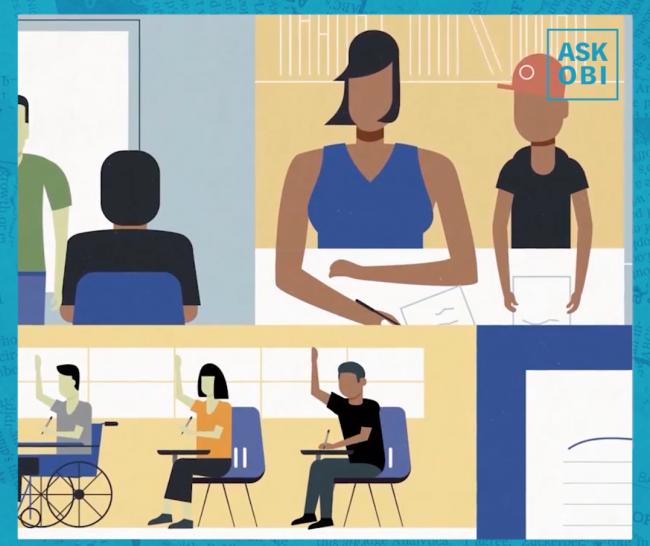In an era of political polarization and fiscal austerity, policy debates too readily become trapped in a binary of either universal responses or targeted solutions. Universal responses enjoy a degree of legitimacy in a diverse and pluralistic society, but they may also be viewed as unaffordable and overly ambitious, while also inadequate at helping those most in need. Therefore, the most marginalized people are often the most skeptical of ostensibly universal policies. Targeted policies may be more efficient and less costly, but by targeting a particular group, these approaches are often viewed as unfairly helping one group over another, seeding hostility and resentment.
Targeted universalism means setting universal goals pursued by targeted processes to achieve those goals. Within a targeted universalism framework, universal goals are established for all groups concerned. The strategies developed to achieve those goals are targeted, based upon how different groups are situated within structures, culture, and across geographies to obtain the universal goal. Targeted universalism is goal oriented, and the processes are directed in service of the explicit, universal goal.
See this new explainer video on targeted universalism
Among the core strengths of the targeted universalism framework is its potential for ingenuity and boldness in policy thinking, which opens up the possibilities for experimentalist design in a nuanced fashion that rejects an “either-or” approach.
Targeted universalism is a platform to operationalize programs that move all groups toward the universal policy goal as well as a way of communicating and publicly marketing such programs in an inclusive, bridging manner. It is an approach that supports the needs of particular groups, even the politically powerful or those in the majority, while reminding everyone that we are all part of the same social and civic fabric. As such, targeted universalist policies are more resistant to the critique that government programs serve special interests, whoever that might be.
We urgently need aligned and coherent strategies that create belonging and promote bridging. Targeted universalism provides an approach for orchestrating these efforts. Targeted universalistic interventions undermine active or passive forces of structural exclusion and marginalization, and promote tangible experiences of belonging. Outgroups are moved from societal neglect to the center of societal care at the same time that more powerful or favored groups’ needs are addressed.
The implementation strategies derived from a targeted universalism framework come in many forms. Some may be simple technical fixes or modest changes to existing programs. Others may be more sweeping changes or deeper structural reforms. Although the targeted universalism framework supports a wide range of policy interventions, the process for deriving implementation strategies unlocks the potential for transformative change. Such changes cannot arise without unraveling the narrow range of preconceived implementation possibilities held by many policymakers and reconstructing aspirations for an equitable society in which everyone can thrive. By emphasizing the universal goal as a way of justifying a diversity of implementation strategies, transformative change possibilities can be envisioned, pursued, and aligned.
This primer is offered in the spirit of sharpening and contributing to a large body of policy models. Targeted universalism is a platform that jettisons an overly formalistic, one-size-fits-all policy formula in favor of an approach that is more outcome-oriented. As such, targeted universalism opens up the possibilities for experimentalist, manifold pathway policy regimes. It is a framework that adds nuance that can complement and accommodate the best work within the domain of innovating policy change. This type of agenda requires deliberate strategizing, ground-truthing, and smart organizing. The growing community of powerful policy, advocacy, community-based organizations and others can meet the challenge. Indeed, they are already well on the way.
Listen to an interview with Director john a. powell on targeted universalism
TU in the news
- We Can and Should Address Racial Disparities (The American Prospect) | June 24, 2024
- Biden Administration Calls for 25% Cut in Homelessness by 2025 (Bloomberg-CityLab) | Dec. 19, 2022
- Targeted universalism: A solution for inequality? (CalMatters) | Feb. 4, 2022
- Achieving Universal Banking: Lessons from the Delta (NPQ) | Feb. 3, 2022
- Achieving Equity Amid Difference: The Promise of Targeted Universalism (NPQ) | Jan. 26, 2022
- Beyond Equity: Targeted Universalism and the Closing of the Racial Wealth Gap (NPQ) | Jan. 19, 2022
- Closing the Racial Wealth Divide—A Call for Strategic Thinking (NPQ) | Jan. 12, 2022
- In Chicago, listening is the first step toward equity (Learning Forward) | Dec. 2021
- The Importance of Targeted Universalism (PRRAC) | March/April 2009




